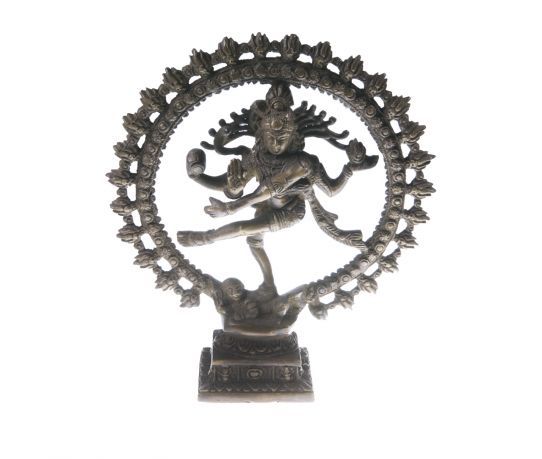We use cookies to make your experience better.
Bronze shiva XXL approximately 40 cm WITH 30% DISCOUNT
Shri Shiva (also called Shiva and Siva; Sanskrit: शिव) is a divine personality (Ishvara) in Hinduism. The meaning of the word Shiva: In the texts of the Vedas and Tantra, and other resources are three meanings of the term Shiva forward. The first and most important meaning of Shiva's wellbeing. Shiva is seen as someone who in many ways (by assuming all kinds of roles) promotes well-being. For all these ways, or rollers to shape Shiva is sometimes depicted with five different faces, two on the left, two on the right side and one in the middle. The second meaning of Shiva is "supreme knowledge or knowledge of the Supreme Being (without attributes) beyond any existential bondage." The third meaning is the person Sadashiva which was about seven thousand years ago born in India.Sadá means "always" and Shiva means "well-being". Sadashiva means "one whose sole existence mission is to promote the general welfare of all beings." Significance of the arrival of Shiva: The first form of Shiva (Rudra) was formed at the end of the Rig Veda era and the beginning of the Yajur Veda era. Many were already Aryans invaded India, and many of them would still come. The Rishis were the leaders of the clans, who traveled around in their cars. This theory, also known as the Aryan invasion theory is called, is now dismissed. This theory is in the past by the Western invasion leaders coined so to continue to suppress the dark people. This can be read on the following Wikipedia page: Aryan invasion theory, the collective teachings of the Rishis (sages) and munis (scholars), who were called Arsha Dharma, were subject to constant change. Thus, for example, changed over time, from one to the other Vedas, the system of nomination and the decision of mantras. The Saivisme as a form of Bhakti arises in South India probably in the fifth century AD.
Brass is an alloy of copper and tin. The tin content can vary from about 10 to 30%. The alloy has a reddish to yellowish color, depending on the tin content. The period in history when humanity is widely made use of objects made of bronze, traditionally called the Bronze Age. Bronze is the first metal (in some earlier articles of copper from the Neolithic after) used by humans in the Low Countries, replacing stone in the Palaeolithic. It is a tough and corrosion-resistant material, which lends itself well to treatment. A bronze surface will after a certain time a green patina.












